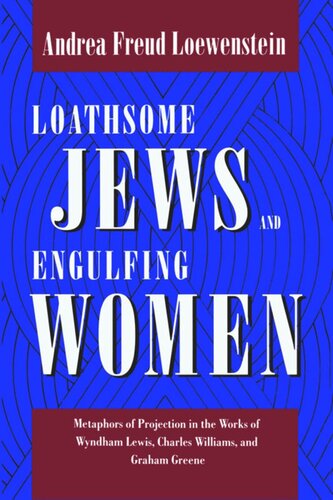

Most ebook files are in PDF format, so you can easily read them using various software such as Foxit Reader or directly on the Google Chrome browser.
Some ebook files are released by publishers in other formats such as .awz, .mobi, .epub, .fb2, etc. You may need to install specific software to read these formats on mobile/PC, such as Calibre.
Please read the tutorial at this link: https://ebookbell.com/faq
We offer FREE conversion to the popular formats you request; however, this may take some time. Therefore, right after payment, please email us, and we will try to provide the service as quickly as possible.
For some exceptional file formats or broken links (if any), please refrain from opening any disputes. Instead, email us first, and we will try to assist within a maximum of 6 hours.
EbookBell Team

5.0
90 reviews"A remarkable study, one that I recommend to any reader fascinated by the shaping of culture and the power of the psyche." - The Forward
How typical of his generation was T.S. Eliot when he complained that Hitler made an intelligent anti-semitism impossible for a generation? In her new book, Loathsome Jews and Engulfing Women, novelist and critic, Andrea Freud Loewenstein examines the persistent anti-semitic tendencies in modernist, British intellectual culture. Pursuing her subject with literary, historical, and psychological analyses, Loewenstein argues that this anti-semitism must be understood in terms of its metaphorical link with misogyny.
Situated in the context of the history of Jews in Britain, Loathsome Jews and Engulfing Women begins by questioning the widespread belief that the British government was a friend to the Jews in the 30s and 40s. Loewenstein shows that, as evident in the hypocrisy of many British governmental policies prior to and during WWII, Britain actively collaborated in the Jews' destruction. Against the backdrop of this tragic complicity in the Holocaust, Loewenstein evaluates Jewish stereotypes in the works of three representative twentieth-century British thinkers and writers. Her analysis provides a revealing critique of British modernism.
In a larger sense, Loathsome Jews and Engulfing Womenexplores the riddle of prejudice. Loewenstein argues that anti-semitism is nurtured in an environment populated by other hatreds --misogyny, homophobia, and racism. To explain the interaction of these prejudices, she develops an investigative model grounded in object relations theory and informed by the works of such theoretically diverse authors as Virginia Woolf, Kate Millett, and Alice Miller. Loewenstein lucidly argues within an autobiographical framework, insisting on the need for critics to . . . look within ourselves for 'that terrible other' rather than to complacently assume that we ourselves exist outside the ideology of power.
This well-written and readable book will be of interest to many people, ranging students of British history to psychoanalysts, from historians of Jewish culture to anyone interested in feminist and literary theory.